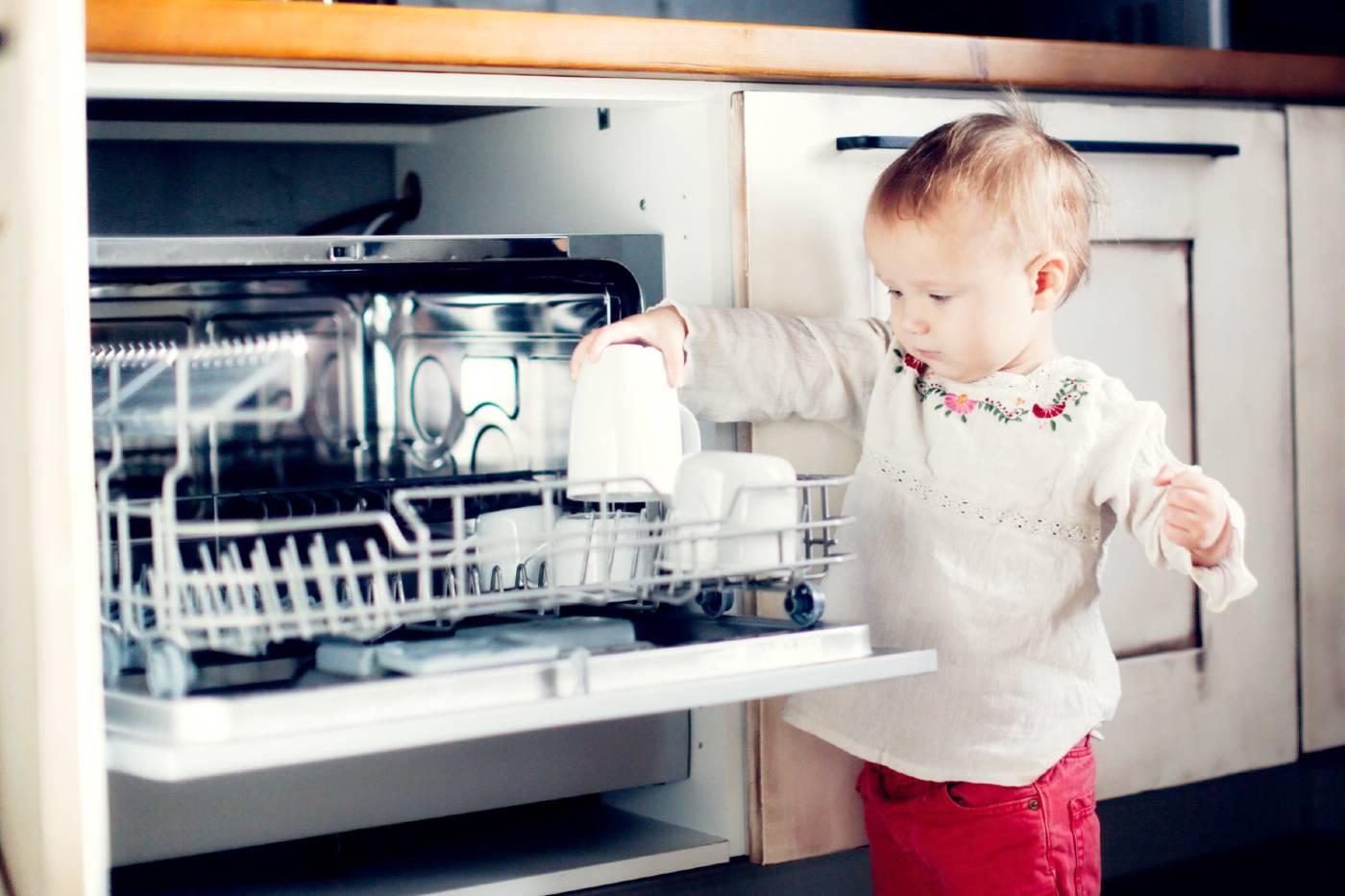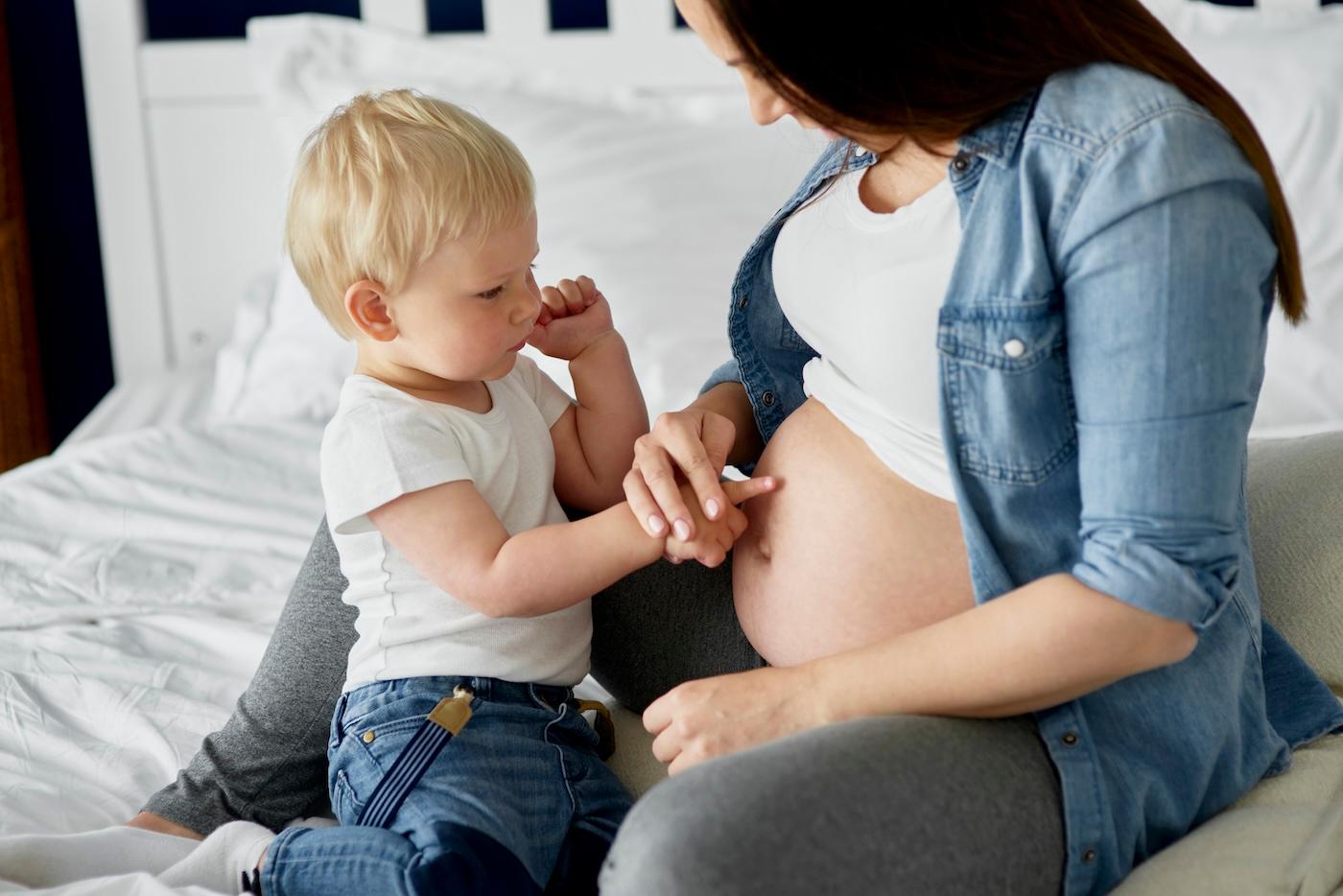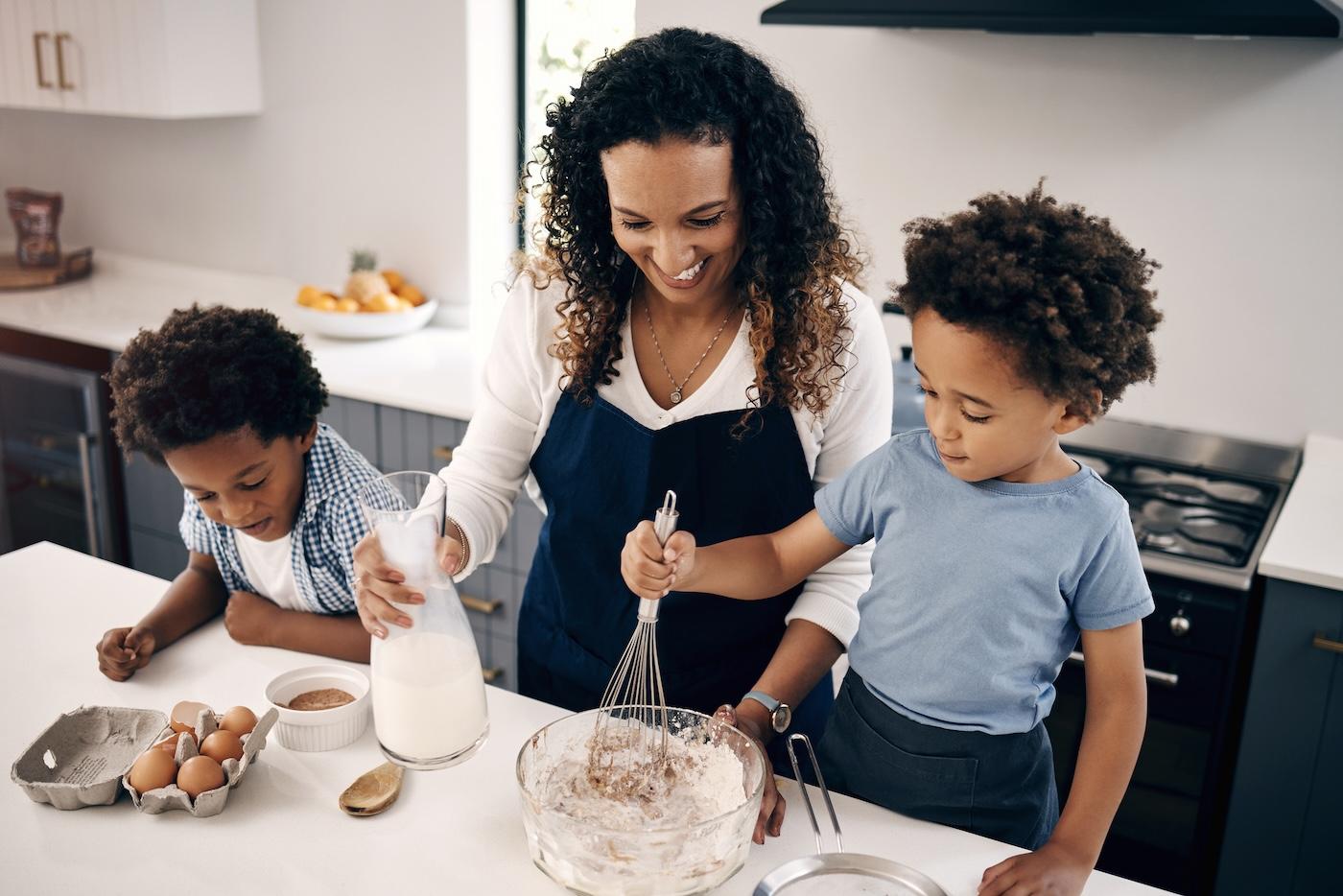TODDLER
34 Age-Appropriate Chores for Toddlers
Chores do not just help keep your home clean, they also give your kids an excellent foundation for their future.

Written by
Happiest Baby Staff

As any parent can tell you, trying to tidy a house with kids in tow is like trying to clean in a hurricane. So you are not alone if you have wondered when you will finally be able to enlist your little one to help pick up. Plus, chores do not just help keep your home spic-and-span, they also give kiddos an excellent foundation of skills for their future. Having kids help with chores at an early age instills work ethic, responsibility, and a sense of self-pride.
But before you start fantasizing about your 3-year-old scrubbing and sweeping your home to pristine perfection, keep in mind that the ultimate goal for kids is to learn to follow directions and see their task through to the end. You might even end up having to redo their chore once they are done, but do not fret; they will get it soon enough. With patience and lots of practice, toddler chores will soon become an easy part of everyday life. To help get your child started, here are some age-appropriate chore ideas (get that kid-sized dustpan ready, Mum and Dad!).
Chores for Toddlers 18 to 24 Months
Toddlers in this age group love to explore, so take advantage of their natural curiosity to help them learn how to pitch in and help. Try these simple, manageable tasks for young toddlers:
- Set the dinner table with the help of an older sibling or parent.
- Help wipe down the table after mealtimes.
- Pick up toys—one type at a time—after playtime.
- Put dirty towels and clothes in the hamper.
- Help feed the pets with guidance from an older sibling or parent.
- Use a wet wipe or cloth to dust furniture or cabinets.
- Pick up toys in the yard—one at a time—and put them in their proper place.
- Clean up small spills under the supervision of an older sibling or parent.
- Put away books after reading time.
Chores for 2-Year-Old Toddlers
By 2 years, kids will tend to have a fierce sense of wanting to do things themselves. Help your toddler take on more significant responsibilities with this simple list that builds on skills they have already learned. Here are a few chores 2-year-olds can add to their routine:
- Begin cooking with a parent by fetching ingredients, stirring ingredients in a bowl, wiping down counters, and putting dirty dishes and utensils in the sink or dishwasher afterward.
- Help a parent sort laundry by color. Move clothes from the washer to the dryer and from the dryer to a basket. Learn to put clothes away in dresser drawers.
- Hang up coats and line up shoes.
- Use a child-size broom or dustpan and brush to help clean up floors.
- Play a 'sock matching game' during laundry time.
- With help from an adult, learn how to use cleaning spray (use vinegar and water or another non-toxic blend) and wash tabletops.
- Neatly arrange toys and stuffed animals in the bedroom.
- Choose clothes for the next day and lay them out for the morning.
Chores for 3-Year-Olds
By age 3, kids develop an admirable independence streak. They will want your assistance less and less as they try their best to accomplish their tasks all on their own. To give them an added challenge, try adding these tasks to your 3-year-old's routine:
- Water houseplants with a small watering can.
- Help weed the garden, water plants with a hose, and return gardening tools to their proper place once finished.
- Put trash in the trash can and sort recycling into bins.
- Help prepare snacks and meals by washing and peeling fruit, washing and sorting vegetables, and plating small finger foods (like crackers, cheese cubes, and other small foods).
- Help a parent empty the dishwasher by handing clean dishes and silverware to an adult.
- Help hand-wash dishes by using a kitchen towel to dry non-breakable dishes.
- Learn how to strip their bed of blankets and sheets to wash.
- Help set up the bathroom for bath time by getting out a clean towel, washcloth, and favourite bath toys.
Chores for 4-Year-Olds
By the time your child is 4, you might wonder where the time went; they are getting so big! Their sense of responsibility and pride from contributing at home is growing. Encourage your kids to take on even bigger tasks that continue to build on the chores they have already learned. Try these:
- Pour drinks into cups for mealtimes, set the table, and help clear the table at the end of meals.
- Fold clothes during laundry time and then put them away in drawers.
- With help from an older sibling or parent, help walk the family dog or tend to other pets.
- Shovel snow in the winter and rake leaves in the fall.
- Make their bed every morning.
- Wash window and mirrors using cleaning spray and cloth.
- Put towels away, replace toilet paper rolls, and help keep the bathroom counter picked up.
- Gather any electronics for charging at night, such as an iPad or Kindle.
- Help parents with meal planning for the week by choosing healthy snacks, meals, and treats.
Disclaimer: The information on our site is NOT medical advice for any specific person or condition. It is only meant as general information. If you have any medical questions and concerns about your child or yourself, please contact your health provider. Breastmilk is the best source of nutrition for babies. It is important that, in preparation for and during breastfeeding, mothers eat a healthy, balanced diet. Combined breast- and bottle-feeding in the first weeks of life may reduce the supply of a mother's breastmilk and reversing the decision not to breastfeed is difficult. If you do decide to use infant formula, you should follow instructions carefully.
SHARE THIS ARTICLE
PARENT PICKS
Bestsellers



















